Do you need to move grass from one spot to another? Here's our complete guide on how to transplant grass in your yard!
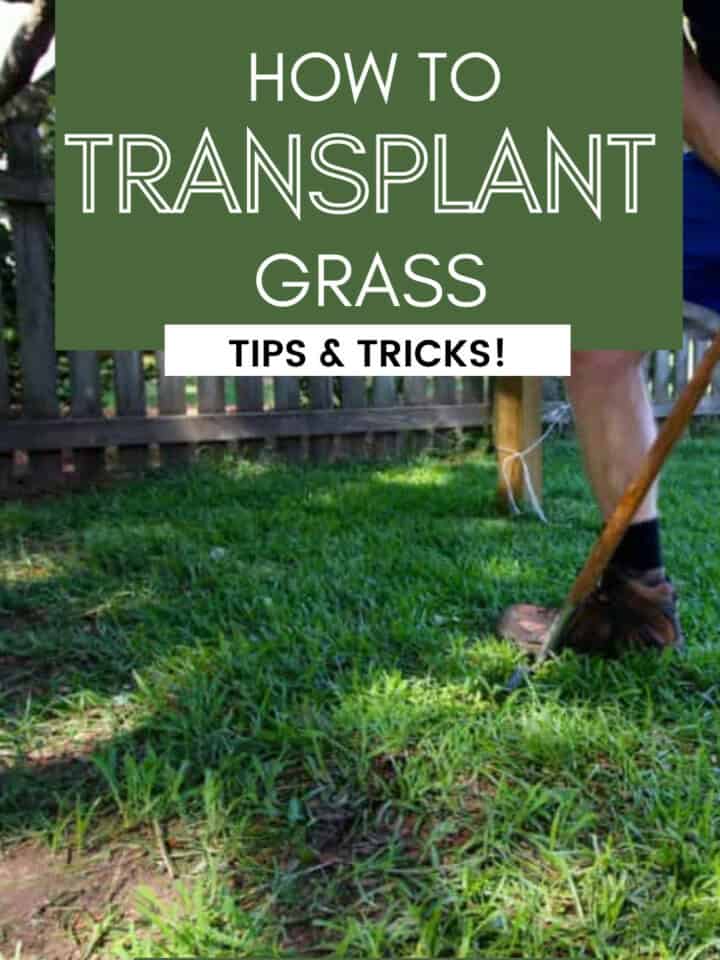
We have been working so hard to grow grass in our yard and it's finally starting to work. Sadly, one of the spots where it is working REALLY well is an area we don't want grass...
We're working on a fairly big project in our yard to finish off the area around where we constructed a DIY hammock pergola stand earlier this year.
When we constructed it, there was zero grass near there.
In roughly four months, grass has spread a good five feet in from the side of the area.
Normally, that's a great thing and exactly what we'd be looking for. But here, we are going to be filling in this area around the hammock stand, so we actually don't want the grass. Sad face.
Since the grass is so good, we wanted to attempt to transplant that grass into an area of the yard that doesn't have grass yet. To do this, we're basically creating our own sod with the grass that's growing where we don't want it.
How to transplant grass isn't that hard and can definitely be done instead of throwing it away.
Transplanting grass is a great way to help the natural environment and keep grass growing where it's supposed to.
Here's how to dig up grass and replant it!
How to transplant grass
Let's show you the best way to transplant grass in your yard.
Transplanting grass is a great way to get unwanted grass from one section of your yard to an area where you do want grass.
This is a great process if you're going to be installing a simple DIY garden bed or planting trees and you want to move the grass from the area you'll be removing.
Step one: till soil in new area
The first step is to till up the ground where you want to transplant your grass to.
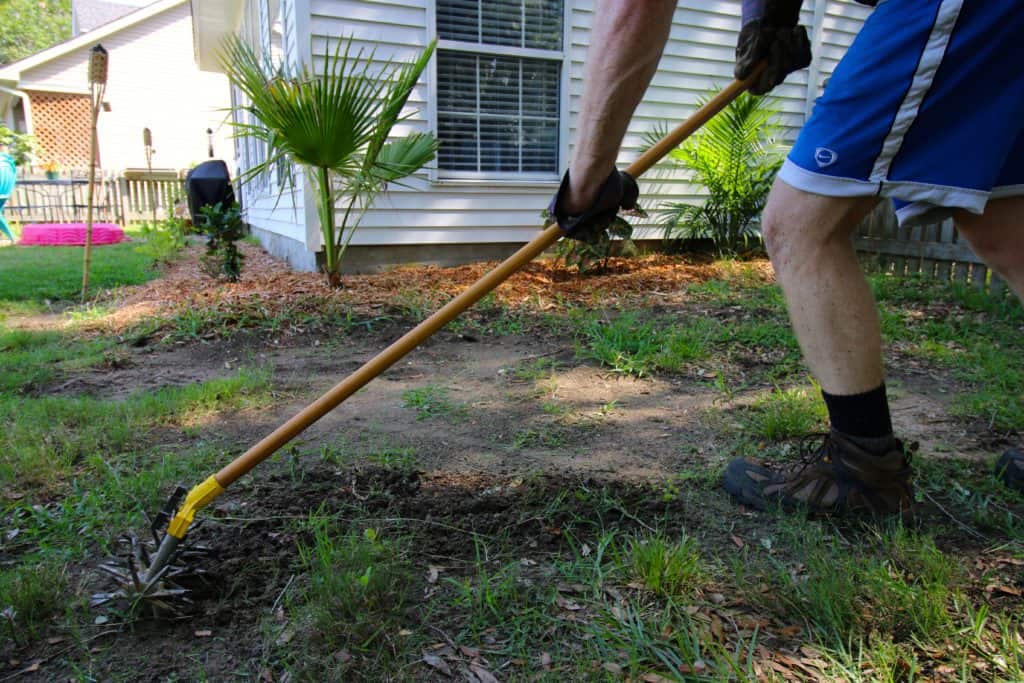
This will break the soil up and make it easier for the sod to connect in the new area, allowing for the grass roots to take.
To do this, use a handheld tiller or a battery operated one to grind up the soil as much as possible so there is plenty of opportunity for the roots of the transplanted grass to grab hold and take.
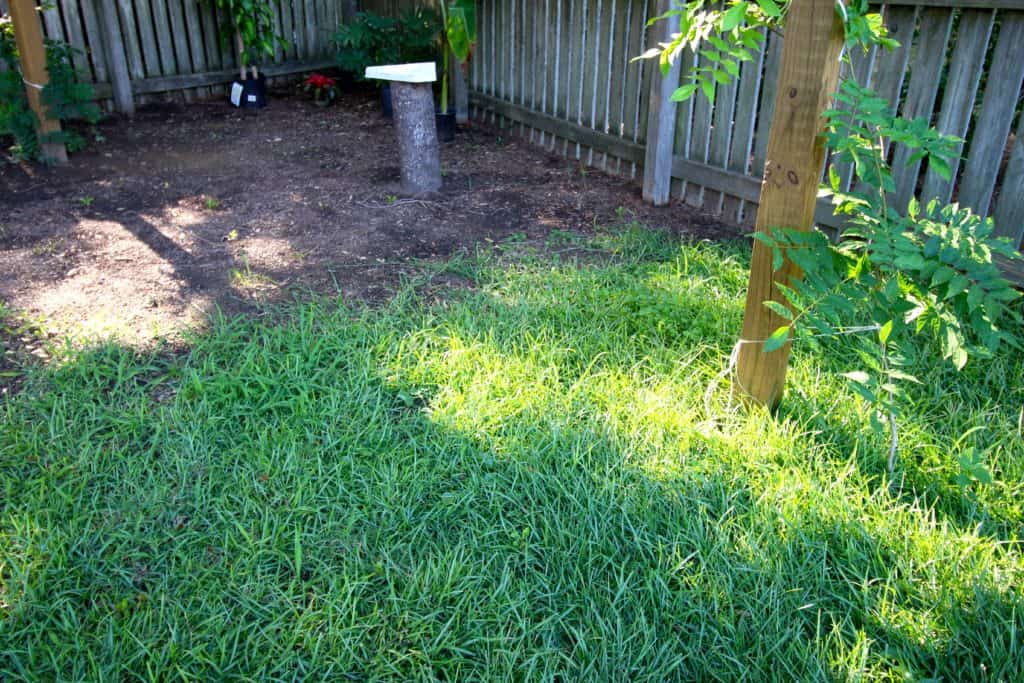
Step two: dig up grass in old area
In the area where you want to remove the grass, start by using a shovel or spade or go around the entire area you want to remove.
Drive the shovel a couple of inches into the ground, making sure you're below the depth of the roots.
Then angle the shovel level with the ground and push in again so that it goes just underneath the roots of the grass.
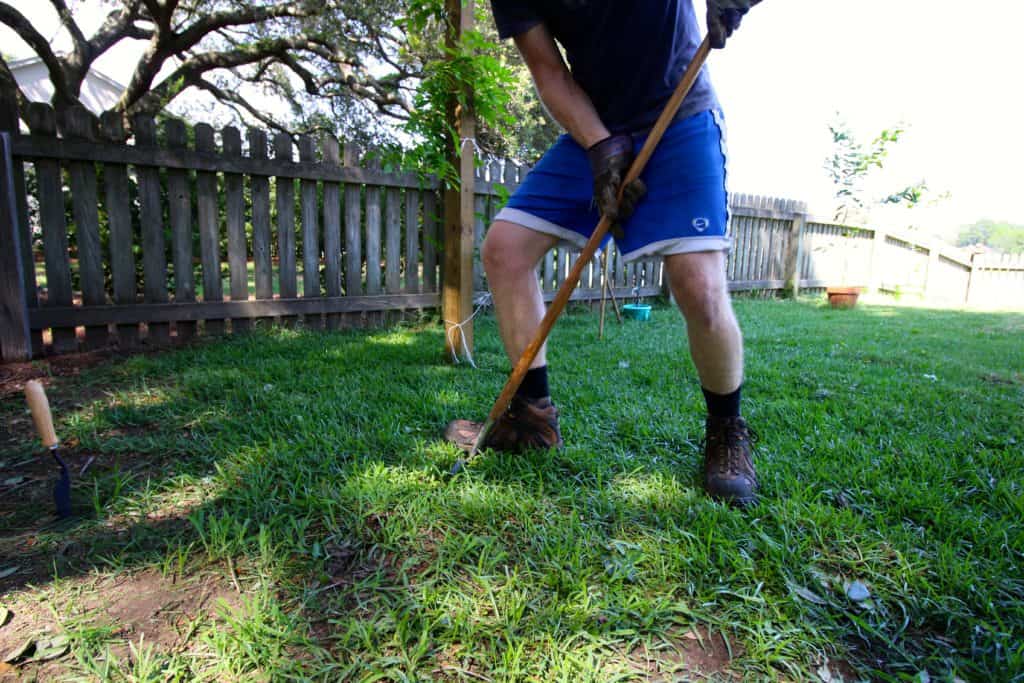
The best way to get the grass up is to work in strips about the width of the shovel.
Once you have created a line on one side, go to the other side and do the same thing, making sure that your whole strip is now detached from the ground.
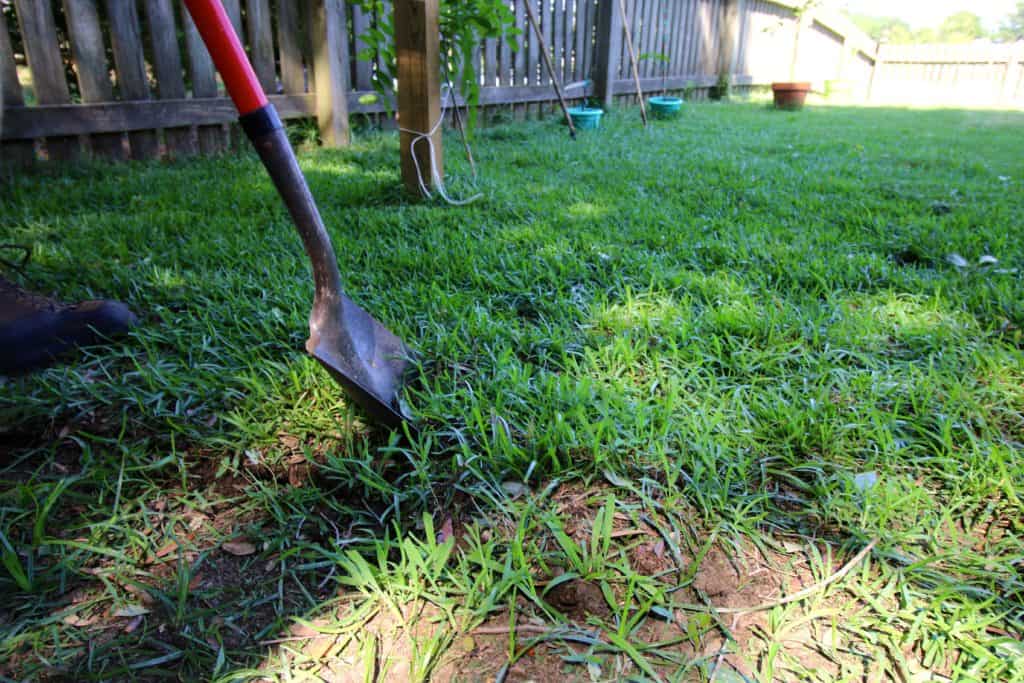
Step three: move grass from one area to the other
Now, try to roll or fold your strip and carry it over to the new area. This is where the grass is like sod. If you can't roll it up or fold it, simply cut it into square sections with your shovel.
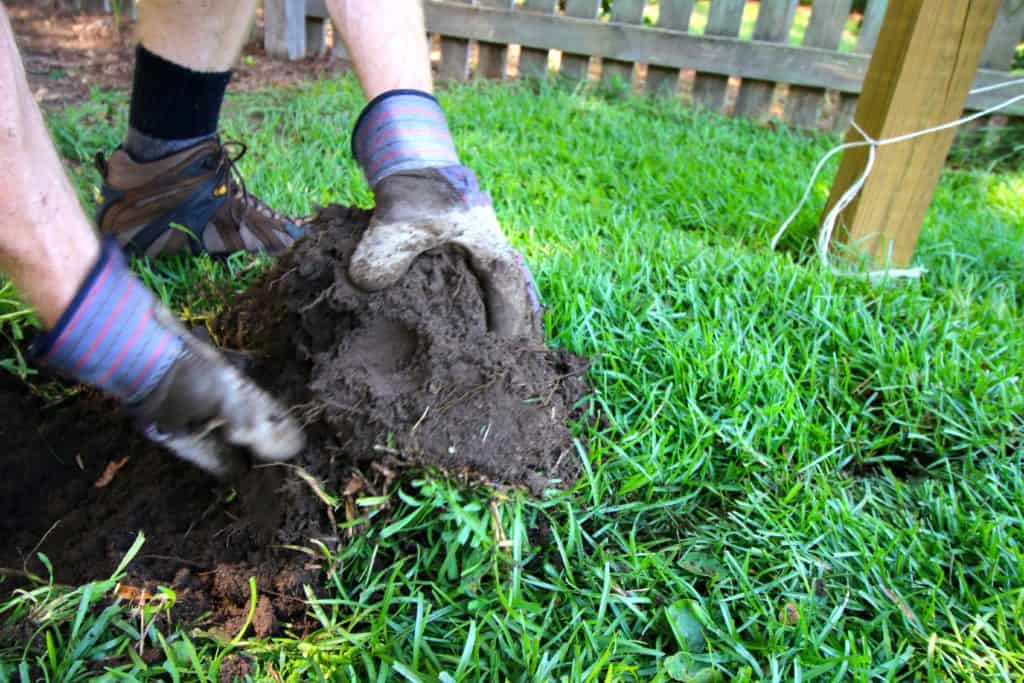
Here, unfold your homemade sod roll and try to move it back and forth to work it into the tilled up soil.
The goal here is to get the dirt from the grass to combine with the tilled up dirt so that the roots of the grass can adhere quickly and easily. If the ground is hard or the sod is just dropped on top, the roots will have a difficult time getting into the ground.
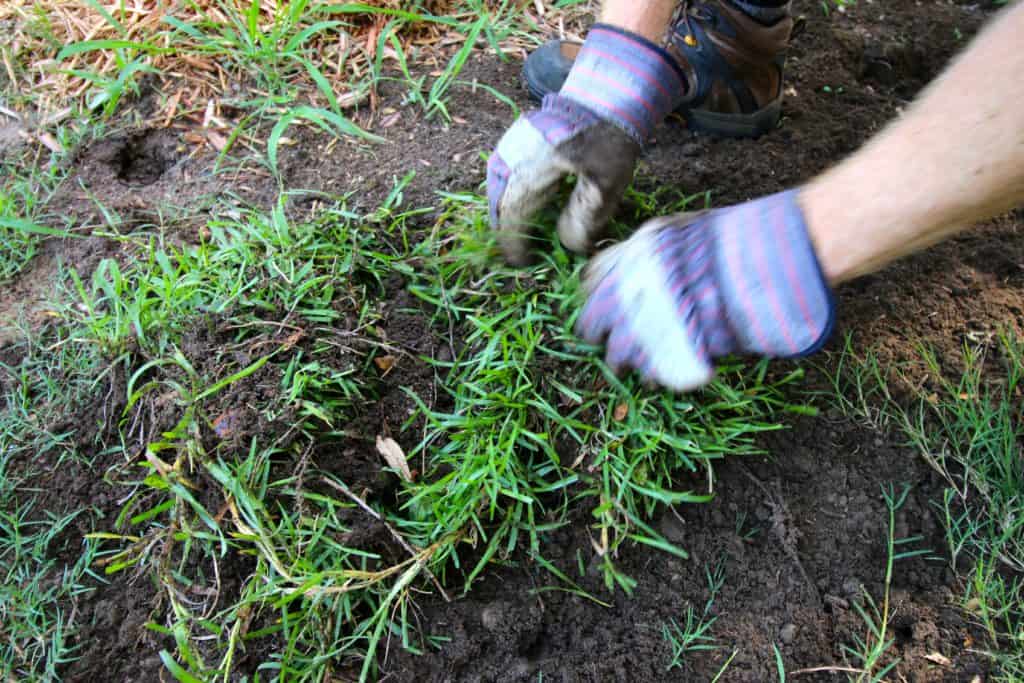
Continue these steps for however many strips you have.
It won't look pretty in the new area, but try to get the strips to be as near each other as possible, starting at another point where grass is growing if you can.
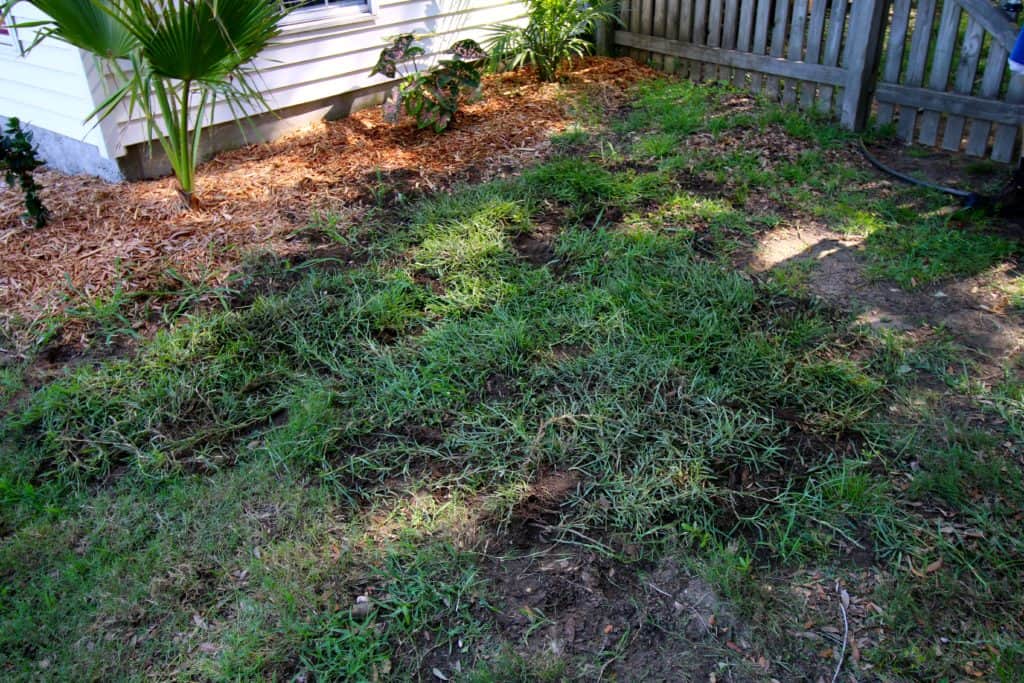
Step four: watering and maintenance
Once everything is moved to the new area, water the crap out of it.
You want to have the water soak through the sod and into the original dirt.
This will help combine the soils and help make them one.
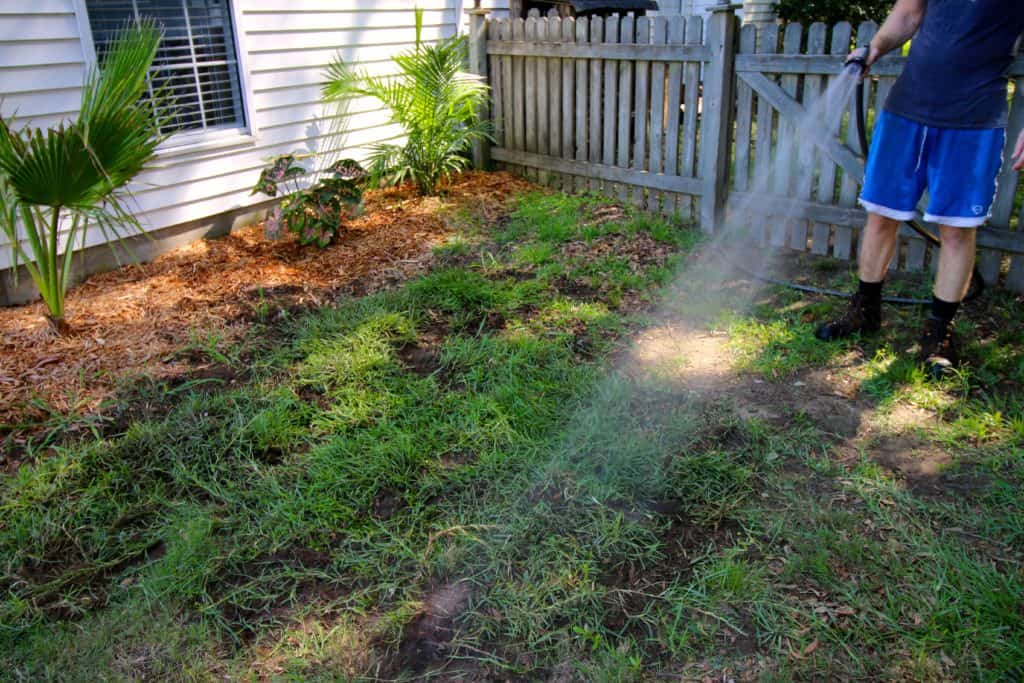
This area took about 95% of the grass we transplanted and is looking great.
Avoid mowing this area for a couple of weeks so that it doesn't get too short while trying to establish its new root system and the soil is leveling out.
The easiest way to DIY transplant grass
It might not all take, but hopefully your bare patch looks a lot less barren now! And, hey, free grass!
Transplanting grass is an excellent way to help your yard look better and do better and helps you get exactly what landscaping you need.
If you need to fill just a small section of grass, be sure to read our guide on how to patch grass in your yard!

We've shared a lot about grass in the past:
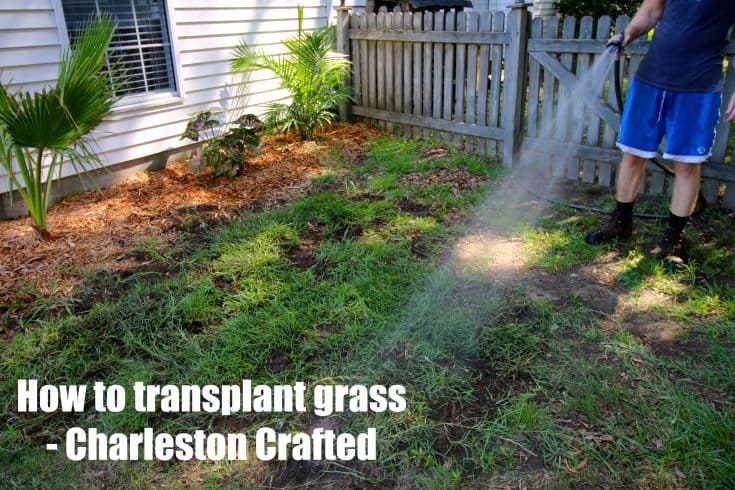
How to transplant grass
It's easier than you might think to transplant grass from one spot to another.
Materials
- None needed
Tools
- Shovel
- Hose
- Tiller
Instructions
- Till the land where you want the transplanted grass to go to break up the soil.
- In the area where you want to remove the grass, start by using a shovel or spade or go around the entire area you want to remove.
- Gently lift the grass from underneath with the shovel. Work in strips about the width of your shovel.
- Once the whole strip has been separated from the ground, roll it up into itself lengthwise, so it looks like a cinnamon roll or a roll of sod.
- Place it on the new transplant location.
- Work the new grass into the tilled ground. This encourages the roots to take.
- Repeat strip by strip.
- Water heavily to combine the new soil with the existing tilled soil.
- Keep well watered until it takes.
Looking for something?
We've been doing this since 2012 so we have a LOT of blog posts!
Search stuff like: Ceiling Projects | DIY Plant Stands | Thrift Flips


Hey there, I'm Sean, the woodworking enthusiast and builder behind CharlestonCrafted.com! Since 2012, I've been sharing the magic of turning raw materials into beautiful creations. I love teaching others the art and satisfaction of woodworking and DIY. I try to inspire fellow crafters to make something extraordinary out of nothing at all.


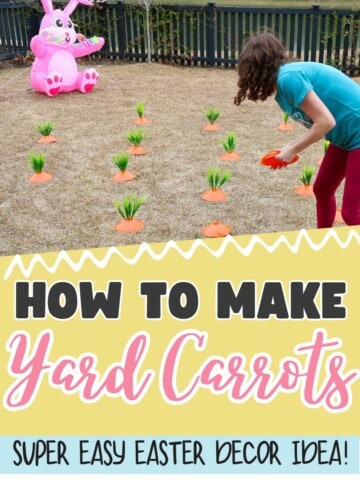
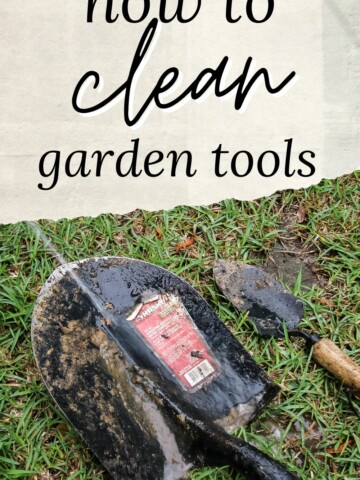
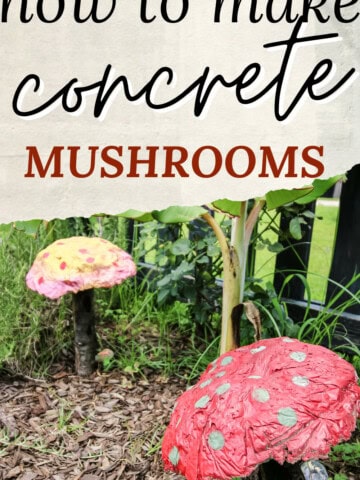
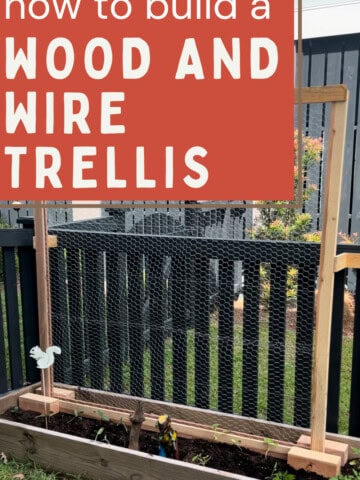
[…] Gently lift the grass from underneath with the shovel. Work in strips about the width of your shovel. Once the whole strip has been separated from the ground, roll it up into itself lengthwise, so it looks like a cinnamon roll or a roll of sod. Place it on the new transplant location. via […]